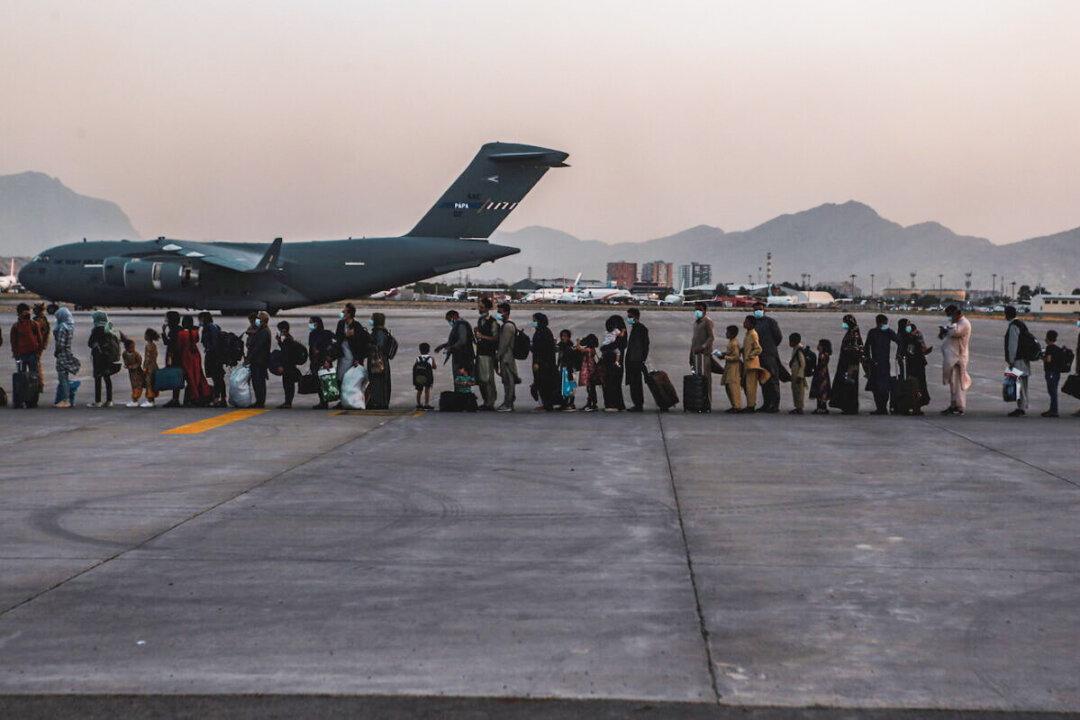The U.S. Embassy in Kabul, Afghanistan’s capital city, issued a statement on Aug. 25 advising Americans in the country to avoid traveling to Kabul airport, citing security threats.
“Because of security threats outside the gates of Kabul airport, we are advising U.S. citizens to avoid traveling to the airport and to avoid airport gates at this time unless you receive individual instructions from a U.S. government representative to do so,” the embassy said in a security alert.




